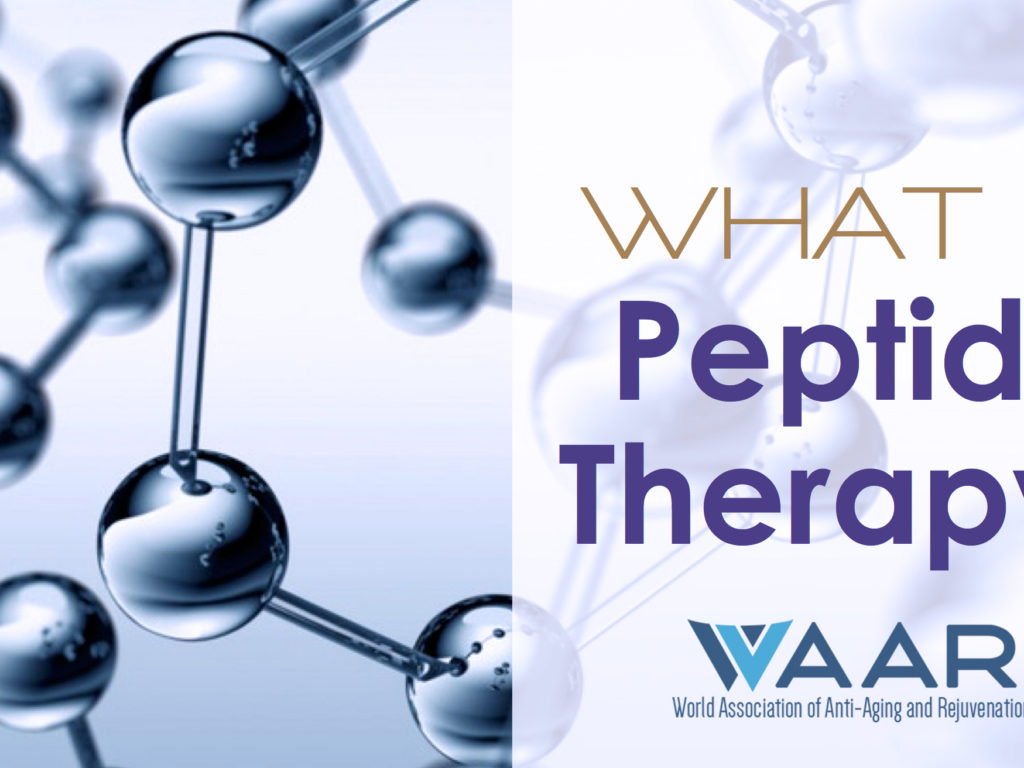The World Association of Anti-Aging and Rejuvenation, an age management center, offers peptide therapy, peptides are essential factors to help mobilize the immune system against foreign invaders.
Indeed, now that we’re facing a huge pandemic crisis in the world (COVID-19), everybody seems to be more aware that the human body is constantly prone to be in contact to organisms (bacteria, virus …) that can be inhaled, swallowed, or inhabit our skin and mucous membranes.
However, the way that we react to these organisms are really different from one person to another.
Why some people are more affected by one bacteria or virus than other? What is causing the disease?
The answer is closely linked to how effective is our immune system! For sure, we will have to consider the pathogenicity of the organism (virulence factors) but also the host defense mechanisms.
What is good to know is that you are now in a position to take control on the effectivity of your immune system by using peptides!
A short story…
The central role that peptides play in the immune responses has been recognized in a wide range of medical literature but also by public health organizations which have promoted the creation of peptides-based vaccines.
Since antibiotic are less and less effective because of the emerging threat of antibiotic resistance, it has motivated researchers to find new methods to combat pathogenic microorganisms.
The increasing knowledge about the chemistry and pharmacological properties of antigenic and antimicrobial peptides as well as of the biology of antigen processing, presentation, and recognition by immune cells, has now allowed a more rational approach to vaccine and drug design.
It has been discovered that peptide-based vaccines can induce humoral (antibody) and cellular (cytotoxic and helper T cell) immune responses. Synthetic peptides are exquisitely placed to answer questions about immune recognition, indeed, much of the progress has been made in defining the physiological roles of adaptive and innate immunity.
Therefore, this article will help you to understand:
- How is the immune system working?
- What are the effects of peptides on our immune responses against foreign invaders microorganisms?
- How can peptide therapy benefit you?
The immune system and its different response
Immunity is divided into two parts determined by the speed and specificity of the reaction. These are named the innate and the adaptive responses.
- The innate response encompasses the elements of the immune system (neutrophils, monocytes, macrophages, complement, cytokines, and acute phase proteins) which provide immediate host defense.
Innate immunology does not cover a specific response scheme to a specific threat, but rather is a catch-all field representing many different groups of immunological responses that attempt to disrupt, destroy, or block the activity of pathogenic microorganisms that could cause harm to our body
A number of different cell types, play an important role in innate immunity.
For example, Neutrophils are constituent components of blood that arrive at the site of infection and attack pathogenic microorganisms by phagocytosing them, releasing antimicrobial compounds into their environment (= Antimicrobial peptides also known as Host defense peptides), or by releasing cytokines which enhance and accelerate the adaptive immune response.
- The adaptive response consists in antigen-specific reactions through T lymphocytes and B lymphocytes.
It involves:
- Host screening to differentiate specific “non-self” targets from those native to the host.
- Host development of a finely tuned immunological response (e.g. antibodies) to identify, target, destroy, or neutralize specific targets perceived as non-self.
- Host retention of immunological memory to allow for rapid identification of and response to the same specific antigenic target in the event of future incursions.
The adaptive immune response is powerful because it allows the host to unleash potent defenses that identify, attack, and destroy invading pathogens without causing undue harm to surrounding tissue.
However, it takes time for components of the adaptive immune system to clearly recognize a specific pathogen and mount a systematic, specific response to it.
What are the effects of peptides on our immune responses?
Historically, innate immunity has not enjoyed the same deep level of interest and study as the adaptive immunological response.
However, investigation of innate immunological response to infection has enjoyed a resurgence in recent years because the antimicrobial compounds that it involves.
For example, Antimicrobial peptides (or AMPs) are a diverse class highly of conserved of small peptide molecules that attack, destroy, and deactivate invading bacterial, viral, or fungal pathogens in a variety of different ways.
Some classes of antimicrobial peptides function as potent, endogenously produced, broad base antibiotics.
They act primarily through cytotoxic mechanisms, but they have also immunomodulatory (modulation of the immune system) activities which can explain their ability to treat microbial infections.
They are able to enhance phagocytosis, promote recruitment and accumulation of various immune cells at inflammatory sites and induce wound repair.
They are able to enhance phagocytosis, promote recruitment and accumulation of various immune cells at inflammatory sites and induce wound repair.
How can peptide therapy benefit you?
Thymosin alpha 1 (Immune Booster)The most common peptide used for therapy is Thymosin alpha-1 or TA 1. It is a major component of Thymosin Fraction 5 responsible for the activity of that preparation in restoring immune function in humans lacking thymus glands.
The thymus is where immune cells known as T cells mature and are released.
This peptide has been proven to be effective for acute and chronic infections, exhibits antibacterial, antiviral, and antifungal properties, and protection against oxidative stress.
Thymosin Alpha-1 has been used to treat medical conditions including Rheumatoid arthritis, Lupus, Lyme disease, Chronic fatigue, Hepatitis, HIV, and immune dysfunction.
It is the most common peptide used in peptide therapy because it helps the body’s ability to protect against foreign invaders that can harm the body.
Thymosin beta-4 (Recovery and Repair)Thymosin is a hormone secreted from the thymus, also important for a healthy immune system. Thymosin-beta4 has a role in tissue repair and has been found to play an important role in protection, regeneration, and remodeling of injured or damaged tissues.
Website design, marketing and SEO by Blue Guys



